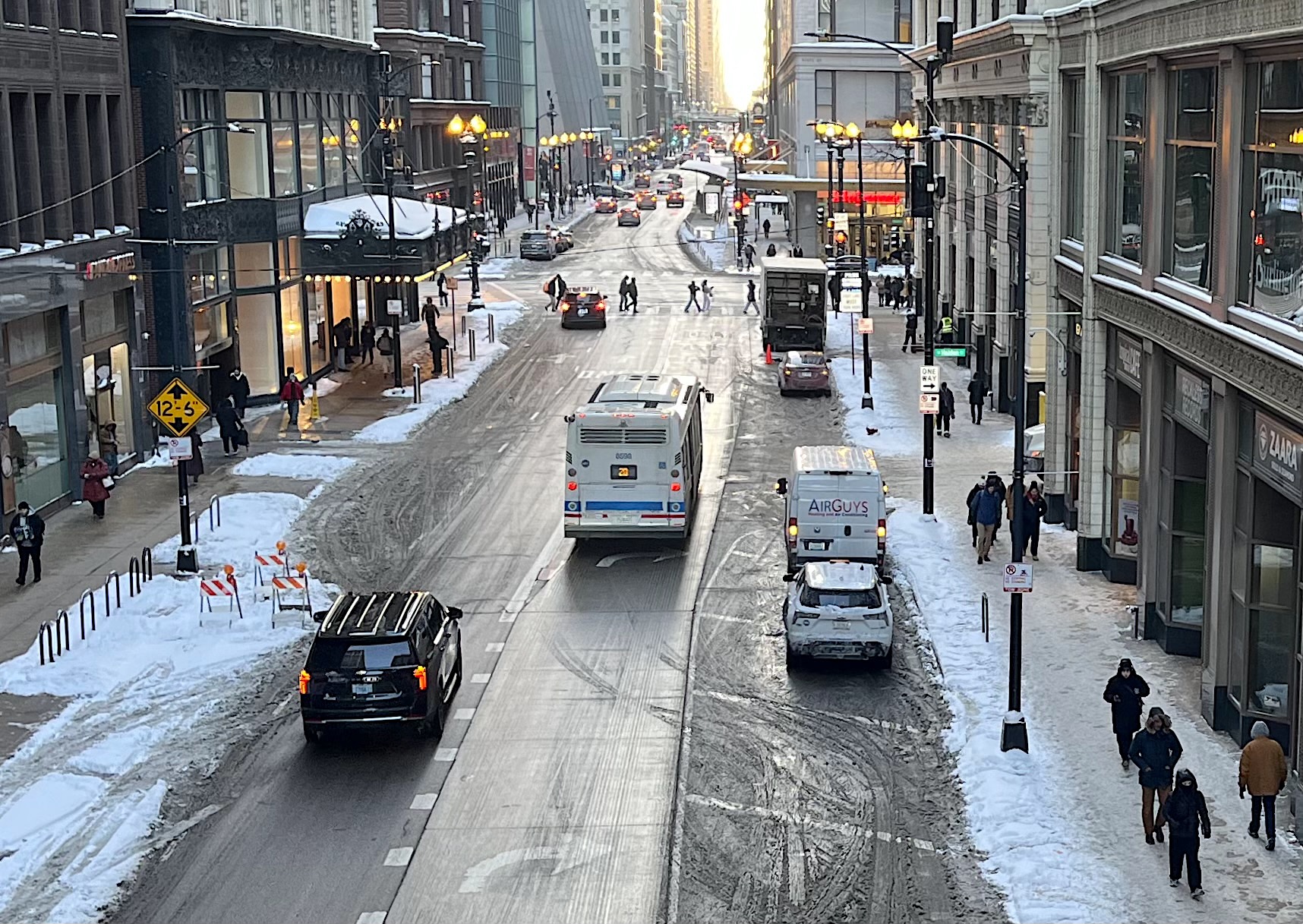Mayor Rahm Emanuel’s announcement today that he has renegotiated the city's much-hated parking meter contract to save an estimated $1 billion over the next 71 years appears to be a big win for Chicago residents. The introduction of a new pay-by-cell option, albeit with a 35-cent convenience fee, also seems to be a good thing. But while many Chicagoans will cheer the news that Sunday parking would be free as part of the agreement, in reality this may hurt local businesses and lead to more traffic jams.
Emanuel heralded the proposed changes at a press event at City Hall. Notably, he did not take any questions from the media after his ten-minute speech. He laid the blame for the original meter contract squarely on the shoulders of the Richard M. Daley administration. “It doesn’t take a math degree to know that this was a bad deal for our city and a bad contract for our residents,” he said. “The city should never have done this deal, period. They should not have put Chicagoans in a position where we have to pay a private company when we make changes to our own streets.”
After months of negotiations, the city and Chicago Parking Meters, the parking concessionaire, have settled their differences over the $49 million that CPM said it was owed for loss of revenue to street closures for festivals, handicapped parking spots, and other modifications during the past two years. The company has agreed to go along with the city’s accounting of the revenue loss as being only $8.9 million, which the city would now pay as part of the settlement.
In the future, the city will do the revenue loss calculations and present them to CPM, which Emanuel said will save about $20 million annually for the rest of the 75-year contract. “We now have the ability to go toe-to-toe with the parking meters company,” he said. “For the first time, we have started to manage this contract on behalf of Chicago taxpayers.”
As part of the settlement, CPM has agreed to allow free parking on Sundays outside of the Central Business District, bounded by Lake Michigan, Roosevelt, Halsted and North, starting by the end of this summer. In exchange, on all blocks where metered parking currently ends at 9 p.m., paid parking would be extended until 10 p.m., Monday through Saturday. In the nightlife-rich area bounded by the lake, the Chicago River and Division, metered parking would be extended until midnight. There would be no extension of paid parking on blocks outside the CBD where metered parking currently ends at 6 p.m.
“This contract is a straightjacket on the city, and I wanted to create a little wiggle room for our residents,” Emanuel said. “I feel strongly that Sunday should be a day when folks are freed from the grasp of the parking meter company. As one resident told me, you shouldn’t have to pay to go to church. Whether you go to church or not, everyone deserves a break on feeding parking meters in our neighborhoods on Sundays.”
As part of the deal, the introduction of pay-by-cell parking, available by summer of 2014, will allow residents to avoid having to print out a receipt at the pay box and then returning to their vehicle to post it on the windshield. Instead, they can simply enter the pay box number into a cell phone app, with the 35-cent surcharge going to CPM for purchases of less than two hours.
The proposed settlement and modifications will be introduced to City Council as an ordinance on May 8. While Daley only gave Chicago’s aldermen three days to review the original contract, this time they will get 30 days. “I expect City Council to take the time to review this proposal and ask the necessary questions, time that wasn’t provided the first time around,” Emanuel said.
He emphasized that the changes to the contract will only mitigate, not fix, what he said was fundamentally a raw deal. “This does not solve our parking meter problem. That’s just not possible,” he said. “I’m trying to make a little lemonade out of a big lemon.”
The proposed changes seem to be a good thing for the city overall, but the introduction of free Sunday parking is somewhat problematic. While I don’t have a problem with churchgoing seniors getting a break at the expense of people out on the town at night, free daytime parking in neighborhood retail districts could have unintended negative consequences.
On-street parking works best when its cost reflects the demand for spaces. When meter prices are steep in high-demand areas, it discourages people from parking in the same spot for long periods, which increases the chance that there will be open spots for short-term parking. When parking is free, it encourages visitors to park for longer periods, and it tempts employees to drive instead of walking, biking or taking transit to work. Their cars might occupy spaces all day, eliminating spots for potential customers.
Although free parking makes finding a space more difficult, people who want to visit a business district on a Sunday might not be aware of that fact. Instead, the nice price may make them opt to, say, drive to Wicker Park on a Sunday, rather than taking the Blue Line. When they arrive, the dearth of available spots will force them to spend more time driving around in search of parking, which contributes to congestion and pollution. So while the new deal seems to be a mostly positive development, the free parking clause promises to make Sundays a little less relaxing for drivers and non-drivers alike.








